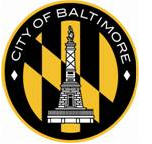Mayor Rawlings-Blake Requests Federal Investigation of Baltimore Police Department
Wednesday May 6th, 2015

FOR IMMEDIATE RELEASE
Mayor Rawlings-Blake Requests Federal Investigation of Baltimore Police Department
Pattern-or-practice investigation will seek to rebuild community trust with police
BALTIMORE, MD. (May 6, 2015)—Today, Mayor Stephanie Rawlings-Blake announced that she has asked U.S. Attorney General Loretta E. Lynch to begin a U.S. Department of Justice “pattern-or-practice” investigation into the Baltimore Police Department.
“I believe the process can help repair the public’s trust in the Baltimore Police Department—even where that trust has long been broken—by bringing about transparency, accountability, and greater community understanding,” Mayor Rawlings-Blake wrote in a letter to Attorney General Lynch.
The request—made formally today under statutory code 42 U.S.C. § 14141—comes one day after Mayor Rawlings-Blake met with Attorney General Lynch in Baltimore to discuss the circumstances of the past several weeks and the broader issues confronting not only Baltimore City, but the nation.
“I left our conversation believing that you are truly committed to reforming police practices wherever they might be in need of repair, and I hope that you appreciate the depth of my commitment as well,” Mayor Rawlings-Blake wrote.
According to the Department of Justice, if Attorney General Lynch agrees to open an investigation into the Baltimore Police Department, a thorough and independent investigation will begin to seek out any persistent patterns of misconduct, focusing on such areas as excessive force, discriminatory policing, and improper stops, searches, or arrests. Federal officials would expect to issue a detailed report at the end of the process, and—if any patterns or practices of unlawful policing are found—a reform agreement, or consent decree, would likely be negotiated.
Over the past several years, Mayor Rawlings-Blake and Police Commissioner Anthony Batts have taken a number of steps to build greater trust between the police and the community, including:
- The development in 2013 of a strategic plan for the Baltimore Police Department, commonly known as the “Wasserman Report.” The plan detailed steps the police department would undertake to reduce crime, improve services, increase efficiency, redouble community engagement, and maintain the highest standards of accountability and ethical integrity.
- Elimination of a police unit known as the Violent Crimes Impact Section, which had been the target of repeated citizen complaints for harassment and use of force.
- A series of public safety town halls across each of Baltimore’s nine police districts, starting in March 2014. Mayor Rawlings-Blake and Commissioner Batts solicited community input that was then incorporated into police department changes and reforms. Those reforms have included new ethics and situational training aimed to help our police officers improve the quality of their interactions with citizens.
- Recruitment of the U.S. Department of Justice COPS Program in October 2014 to come to Baltimore and launch a collaborative process to further enhance reforms.
- Adoption of a new schedule for patrol officers that puts more officers on the streets during peak times and enables a faster response to citizen calls. With this new schedule in place, Commissioner Batts was able to order all officers to spend at least a portion of each shift walking through the communities they patrol, allowing the development of deeper relationships between officers and the citizens they protect.
The city is now moving into a procurement process that will have a body camera pilot program in operation in Baltimore by the end of 2015.
During this most recent session of the Maryland General Assembly, Mayor Rawlings-Blake fought to make substantive changes to the state’s Law Enforcement Officers Bill of Rights to address police misconduct. While the efforts did not win approval in 2015, Mayor Rawlings-Blake has vowed to try again in 2016. General Assembly leaders yesterday announced they have appointed a panel to study laws the legislature could pass to build greater trust between police and the community.
The efforts by Mayor Rawlings-Blake and Commissioner Batts are already showing progress. In 2014, citizen complaints alleging excessive force were down 46 percent. Police discourtesy complaints were down 53 percent. Notices of lawsuits alleging police misconduct are down dramatically over the past three years. The Police Department is also reporting greater success at punishing officers who are accused of misconduct.
If the Department of Justice agrees to open the new federal investigation, it is expected that the Department’s COPS program would continue to remain active in bringing technical assistance to the Baltimore Police Department.